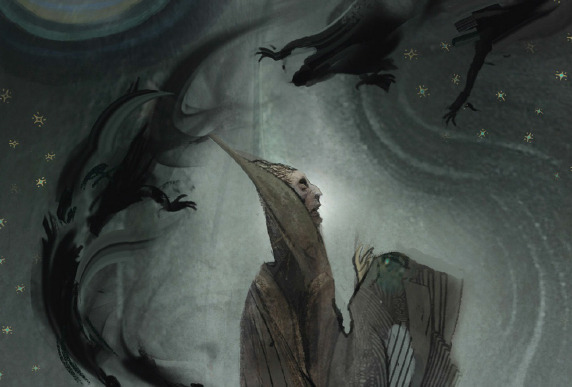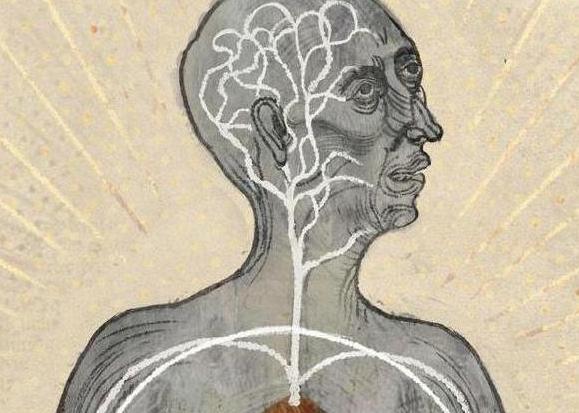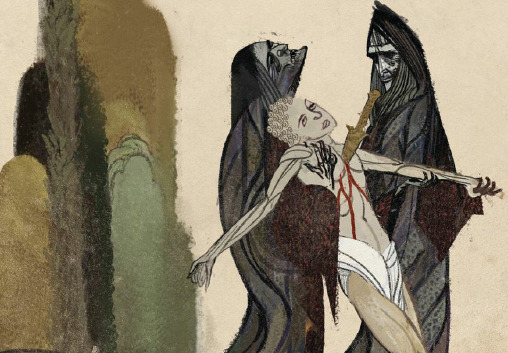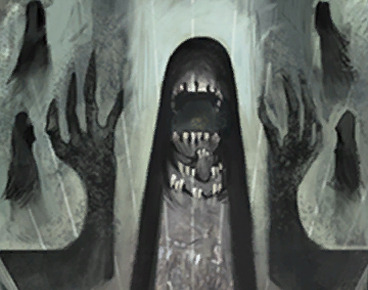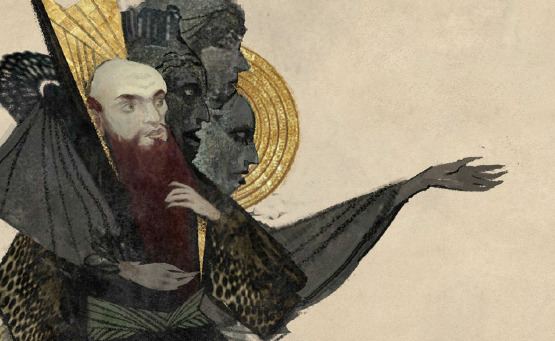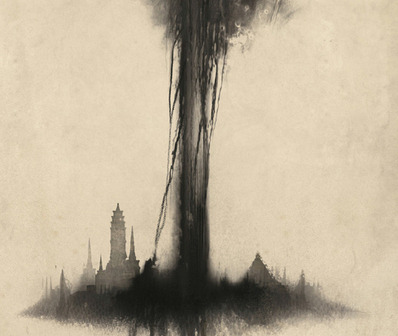PERSONALITY Calm, collected, and highly articulate - Elyan is the model coordinator. He enjoys working and speaking with others, and is careful to take their opinions into account. However, he is also a deeply private person, who rarely expresses his own needs and desires. He is, on the other hand, clear on his concerns and thoughts regarding his position. In truth, all of his extroverted, leader qualities are underscored by a quiet, inwardly focused personality. Even when he is speaking, Elyan is usually very preoccupied with what's going on in his own head. He values family and community, and sees selfish actions and kin-killing as reprehensible actions that deserve punishment - although he sometimes finds it difficult to determine the difference between retribution and vengeance. He is careful not to trust too readily, and he does not make oaths without thinking, or make promises that he cannot keep. Although Elyan values physical and magical strength, he finds greater value in human goodness and generosity - as in the past, it has saved his life. He is deeply religious, and eager to spread the word of his Messiah, and the teaching that were once lost.
BOON Elyan is formally trained as a swordsman, but that is not where his true strengths lie. His true strength lies in his ability to lead people. A gifted, and eloquent speaker who appeals to people's ideals; his abilities at speaking are only bested by his ability to listen. He excels in swaying others, and preaching the Messiah's words, giving them their own weight and beauty. His knowledge helps with this - as his dreams have led him to a unique understanding of the world, and given him insight that others might not have. Some say he can see the future - but this is not true. Elyan's dreams only tell him of the past; of the world of the Messiah — so different than the world of the present.
BANE Elyan rarely expresses it; but he believes that he is the Messiah come again. This belief manifests not in arrogance, but in a paralyzing fear of failure. He is horrified by the prospect that because of his dreams - he alone knows the fate of the Messiah, and some of the old ways of the Gwerin - and that he is responsible for this knowledge. In some, small way, he delights in this. It gives him comfort to know that he knows more than anyone else about the fate of the Messiah, and he has some self-assurance in his actions. But on the other hand, he believes that this will ultimately spell destruction for the Gwerin; because he is not capable of what the Messiah was, and he sees himself as weak, and foolish. He feels that if he fails his people, that will be the end of the Messiah, and there will be no hope of his return- this is something that he cannot live with. Elyan's terrified that his dreams will lead him to darker and more dangerous paths than the road he has already travelled. More than anything, he fears the idea that he is not actually powerful or gifted in any way. Because of this, he privately, never expressively, views all people as truly human - and thus, his inferiors. This rarely comes across in the way he speaks, but leads to him believing he must be the person to save others, and he thus - takes on too much. He fears that he is really, and truly, nothing more than human.
STYLE Elyan avoids direct confrontation when he can. He prefers to rely upon his own gift for speaking, and leading others towards their goals, rather than fight independently. He is not above utilizing his special talents, namely, his
Witchwords in order to end fights before they begin. When pushed into physical confrontation, his weapon of choice is a sharp longsword - leaving one hand free to help him balance, and make signs if need be. His signs are generally a way to communicate soundlessly in battle - a carefully worked sign language that is designed to be quick and fluid. He wears medium armor; a breastplate with leather greaves and gauntlets. Although he rarely utilizes it - largely due to inexperience - he also carries a yew longbow along his back, as well as a small dirk.
WITCHWORDS Witchwords is the common parlance for Elyan's ability to convince others. Although he is a eloquent public speaker on his own, he can magically influence his voice to achieve complete control over the receiver of the Words. Although Elyan can gain control over listeners by merely altering the tonal qualities of the voice, it general only results in his ability to command the listener to follow simple instructions or very clear orders --- which the listener obeys dutifully. However, the Words have some very clear limitations; namely that the Words only last for a few minutes ; and after it wears off, the subject is immediately aware that they have been charmed, and that their will was not their own. Although Elyan can continuously speak his Witchwords to a target, to keep them under his control - that prevents his capability to do anything else, and eventually, the target will have too strong a resistance for the Words to have any continued effect.
SAGESIGHT Some say that Elyan can see the future. This isn't true ; he has dreams of the past, which he uses to inform his choices in the future. This ability only manifested in Elyan following his year-long sleep after a violent confrontation with his mother. This ability is only strong when Elyan is sleeping ; and from what dreams show him he is capable of interpreting visions of the past -- which may or may not have anything to do with his current situation. While awake, his Sight is far more limited. He is capable of a very limited form of prescience - thoughts, feelings, images into the very near past, but nothing more than that. Elyan fears that he will get lost in the Sight, and be unable to see anything but endless visions of the past.
HISTORY A thousand years ago, the Messiah died. When he was killed, a sword was placed through him, by Grand King Amaraan. The Messiah's followers were chased away, hunted to the ends of the earth. Some of them stayed, stayed within Timinster - but many fled. They lived in small communities, by the wayside, lost to the world. The Messiah's people - who called themselves "Gwerin", "The People - lived apart. The settled in a rocky, small cove. In this cove off of the Sea of Mene, there was a long abandoned castle that overlooked the white sands. This region, the Mórgwnystrad, or the White Bay in the common tongue, was where the Gwerin made their home, waiting out the witch hunt. While the world changed around them, they preserved their ancient traditions. For hundreds of years, the priests held out hope that the Messiah - who they called Feaseia - would come again. But the Feaseia did not return. They prayed, they held sermons, they whispered his name into the dark, attempting to conjure his spirit - but the Messiah never came. Nonetheless, they preserved their way of life, preserved the Word of the Messiah ; but many of the Gwerin lost faith. Some of them started to believe that he was never a Messiah at all - but simply a false God. Others thought that the Messiah was just a herald of something else - of a different God who was to come amongst them.
Centuries passed, and despite their efforts, the Gwerin changed. Although they had long been ruled by a collection of high priests, the high priests dwindled. Soon, there was only one chieftain, and one family that ruled them all. Twenty-five years ago, Mórgwnystrad's high priest, their chief and leader, was a man called Duwyn the Black. He was called this for his grim and violent outlook - but he was not always so. Once, he was a man who kept to the teachings of the Messiah - and believed that he would come again. When Duwyn was younger, he had met a witch. She was not so much a witch, as she was the oldest of the Gwerin - so old that nobody knew how old she was. There were stories that she had lived since the days of the Messiah. There were stories that she was the Messiah's concubine, while other stories said that she simply washed his feet and kissed his hands. But from those kisses, she had learned some of the Messiah's teachings. When a man came of age, within Mórgwnystrad -- they went to the witch to learn of their fate. Duwyn the Black was no exception to this rule. He had knelt across from the witch, and she told him many things. She told him what she had told his father, and his father before him, and many men before him. Perhaps it is what she told all men and women of the Gwerin.
Croí agus lasair , claíomh agus farraige , thit an Feaseia fola saor in aisce. leáigh sé cloch , iompú go luaith , agus líonadh an domhain . As a chuid fola , beidh crann gan toradh beith . bhfuil aon leanaí an crann , ach beidh an crann a bheith ag an flaithis , agus beidh na flaithis a chuid torthaí . Ón dteagmháil ollphéist beidh na torthaí ag fás . Nuair a bhíonn na torthaí ithe , beidh an síol a chur fréimhe . Agus amach go mbeidh an Feaseia ag fás arís . Croí agus lasair , claíomh agus farraige , is é an Feaseia aisling saor in aisce. -- The Witch of the White Bay
Heart and flame, sword and sea, the messiah's blood fell free. He melted stone, turned to ash, and filled the earth. From his blood, a fruitless tree will sprout. No children has the tree, but the tree shall reach the heavens, and the heavens shall be its fruit. From monster touch shall the fruit grow. When the fruit is eaten, the seed will take root. And out the messiah will grow again. Heart and flame, sword and sea, the messiah's dream is free. -- An Cailleach ag Mórgwnystrad
With these words in his heart, Duwyn left. He became a great prince - for they had long since adopted the titles of their neighbors, the tradition of high priests cast to the wayside. The story goes that Duwyn had gone fishing with his courtiers, but being a young man, had gone off on his own. He sailed out of the cove, towards one of the great inlet stones that rose out of the water. When he returned to his fishing party, he had a woman in his arms, of unearthly beauty and grace. Her shimmering hair was the colour of starlight, or so the bards claimed, and she had bright violet eyes. Duwyn behaved like a man bewitched around her, and insisted on marrying her on the spot. His father, Henno Longtooth, rejected the marriage, so Duwyn strangled him with a fishing line. There were no further complaints about the marriage. Melsuine bore Duwyll four beautiful daughters, each lovelier than the last. They were named Rhiana, Cwym, Glynna, Dyaeffryn.
However, the Lady's behaviour was strange. She was not of the Gwerin -- so people were naturally susipicious and untrusting of her. But she did nothing to win their trust, spending her days locked away, never mingling with the people, or learning their ways. Although the old faith - the Messiah's faith - was falling to pieces; Duwyn was still very devout, and held a Mass every Friday night, for the lost leader of the Gwerin. But his wife, the Lady Meulsine, did not hold this same faith. She always left Mass before the Annointment, and took the daughters with her. On one such occasion, The Black Lord became curious about her behaviour, and asked a trusted knight to follow her. The knight followed her from the Mass, and watched as she sunk into the water of the cove, taking her daughters down into the deep with her. The knight watched, horrified, as they took on terrible, inhuman qualities; too many fins, teeth, and eyes. He rushed back to report this to Duwynn. Duwynn was uncertain of what to do -- so he turned to the only one who might have known what to do, the old witch, Cailleach. Cailleach read the signs in the water, she carved runes, and she cut her wiry arms open and whispered the Messiah's name to her blood. She pronounced her verdict; Melusine was under a powerful curse, and had been for many years. She was aegelcuwif; a Mother of Monsters. She warned Duwyn that his unborn child -- for Melsuine was pregnant - was surely damned. But Duwyn begged and pleaded, and eventually the witch relented. She said that maybe she could lift the curse -- but it might kill Melusine, even if it spared the child.
Duwyn agreed, but told the witch that if she was unable to save his child, she would find himself at the bottom of the sea, along with all the demons that dwelled there. The witch agreed, and began to prepare. She slaughtered a white ewe, and lit juniper and sage boughs. She mounted the ewes head towards Duwyn's castle, and whispered the Messiah's name. The air in Mórgwnystrad was said to smell like funeral spices for a full week. At the end of the week, the witch came to Duwyn, and said that she would be ready to perform the rite. But the night before the ritual, Melsuine went into labour. The child that she gave birth to, the boy, was not born right. He was not as beautiful as her daughters, nor was he as healthy - the witch suspected that he would succumb to fever or cradle-cough before his first week of life. Duwyll, disgusted with the witch and fearful for his child, took comfort with his wife. Melsuine learned of what her husband had planned for her, and for her daughters from a tearful confession. Duwyn had come to terms with the belief that he would have to kill his aegelcwif. She, according to the legends, lay with her Lord one last time, before snatching her children, transforming into a dragon, and flying into the sea.
The Black Lord's lands fell into disarray, and he fell into grief. the witch Cailleach was tasked with the raising of Elyan. The first thing that the the witch did was perform a through exorcism of the boy, for fear that his mothers' demonic taint had seeped into him. Without his mother for the sacrifice, Cailleach baptized Elyan in lamb-blood, and burnt the lamb's feet in dedication to the The Messiah and their God. Elyan was then entered into the the witch's monastic church, the House of the Messiah. While cloistered, Elyan learned about the Faith and was by all counts a perfectly normal, studious boy. However, when he turned 12, he began to engage in behaviours that Cailleach could not reconcile. One evening, when Elyan had been left to study in the library, Cailleach found him standing over the body of another acolyte. Elyan had slit his throat with a quill-nib. The horrified the witch had sent Elyan back to the castle, and the care of his father - claiming that there was no more that he could do for him.
When Elyan returned to his father's castle, he found that the Black Lord had let his kingdom run into disrepair. He was taxing his small-folk for more and more lavish ways to stay inside his castle, and never leave. The loss of his wife and daughters had weighed heavily on him for twelve years, and even the sight of his son was not enough to pull him from his depression. Elyan, neglected by his father, flung himself into the process of achieving manhood within his small world. He had committed the Words of the Messiah to memory, along with great works of poetry. He was a decent swordsman, and as was common amongst his people an excellent sailor. Despite his violent entry into the world - and his violence against a young acolyte - these traits nearly became forgotten, as Elyan developed, and grew into a fine young man. He was well liked, well thought of, and held both his fellow men, and the Messiah dear to his heart. But there were always whispers. Whispers that he was as monstrous as his mother - whispers that he was a monster too. But there were other whispers too; perhaps he would bring the Gwerin into a new golden age - and they would be able to return to the world.
Elyan was seventeen, when he returned to the witch, to hear what she had in store for him. She welcomed him, despite all that transpired. She told him first, that he had changed. And then - she told him many things. She told him what she had told his father, and his father before him, and many men before him. Perhaps it is what she told all men and women of the Gwerin.
Croí agus lasair , claíomh agus farraige , thit an Feaseia fola saor in aisce. leáigh sé cloch , iompú go luaith , agus líonadh an domhain . As a chuid fola , beidh crann gan toradh beith . bhfuil aon leanaí an crann , ach beidh an crann a bheith ag an flaithis , agus beidh na flaithis a chuid torthaí . Ón dteagmháil ollphéist beidh na torthaí ag fás . Nuair a bhíonn na torthaí ithe , beidh an síol a chur fréimhe . Agus amach go mbeidh an Feaseia ag fás arís . Croí agus lasair , claíomh agus farraige , is é an Feaseia aisling saor in aisce. -- The Witch of the White Bay
Heart and flame, sword and sea, the messiah's blood fell free. He melted stone, turned to ash, and filled the earth. From his blood, a fruitless tree will sprout. No children has the tree, but the tree shall reach the heavens, and the heavens shall be its fruit. From monster touch shall the fruit grow. When the fruit is eaten, the seed will take root. And out the messiah will grow again. Heart and flame, sword and sea, the messiah's dream is free. -- An Cailleach ag Mórgwnystrad
But she told him something else as well - who he would marry. She told him that he must marry the Gwerin's herbalist's daughter. Herbalists were always loved and respected amongst the people, and had taken on a religious significance; as the herbs of juniper and sage were the funeral spices that they used to worship the Messiah. Notoriously difficult to grow on the rocky soil; the herbalist's daughter had proven to be remarkably gifted with such an art. Her name was Valdis, and she was believed to be the most beautiful member of the People; with tan skin, huge, dark eyes and long black hair. Elyan wanted to know why he was intended to marry her - and the witch told him.
Ní thabharfar do pósadh a bheith sásta, agus beidh ort aon leanaí . Ach ní mór dúinn go léir a dhéanamh cad ba mhaith linn is fearr gan mhaithe ár Messiah . Roghnaíodh tú .-- The Witch of the White Bay
Your marriage will not be happy, and you will have no children. But we all must do what we would prefer not to for the sake of our Messiah. You were chosen. — An Cailleach ag Mórgwnystrad
Elyan felt he had to. So, he proposed to Valdis of the Boughs, and she was in no position to refuse. They invited all of the People to their month long wedding ceremonies. The old king, Duwyn, cloistered himself away, unable to see his child's happiness, and the impending nuptials reminded himself to much of the price he had paid to have Elyan. But the truth of the matter, was that the ceremonies were not entirely joyful. While Valdis looked upon Elyan with love in her eyes - Elyan never even looked at her, or spoke to her. His eyes were always elsewhere. He stared at the Gwerin' s architect, a young man with black braids and a ready smile. He stared at one of the last high priests - an older man with long white hair but an unlined face. Never once did he stare at a woman - and Valdis began to understand. She resigned herself to her fate - and told herself that she would find a lover of her own. But something happened.
At one of the many wedding parties, Elyan laid eyes on an older, but still graceful, woman in the crowd. She wore a beautiful gown imported from the far reaches of the world, and her long, pale neck was covered in pearls and opals. But the clothes did not outweigh her own, unusual loveliness She had shimmering silver hair and lavender eyes. With her were four ladies, each dressed in the finest clothes who looked exactly like her, but appeared closer to Elyan's own age. Elyan knew that he had to speak with her, as if bewitched. She looked long at him that whole evening - and whispers began to erupt from the banquet. Some said the strange woman looked like the old queen, Melusine - while others said that she was a foreigner, come to destroy the People. Yet others said that Elyan had her as a secret lover. Indeed, the young prince felt his heart fill to bursting ; he was certain he was in love with her. Despite his wife's pleading for him to come to bed with her - Elyan left her in the middle of the night. He went to the strange Lady's room, and begged the Lady to tell him her name. She told him that she would tell him if he came with her across the sea, to a rock in the middle of the cove. Elyan, overcome with love, agreed.
They rode away together in a silver boat, carved in the shape of a sea-serpent. The four ladies rode with them, and never said a word to Elyan. But they did sing - a beautiful, entrancing song. They taught him to sing it as well, and just as he learned it, they arrived at the rock. But Valdis would not have this. As soon as her fiancé left her - she rushed to her father-in-law, the old king. She explained what had happened, and described the mysterious woman that he had gone with. Duwyn was furious, so furious that he nearly strangled Valdis, until she bit his hand. With that bite, the Black Lord's senses returned, and he pulled his sword from the wall, and went after his son - but did not find him in the Lady's room. He knew, though, where he had gone. Where else could he have gone? Melsuine was a monster that had come from the sea - from one of the great inlet stones that rose out of the water. Duwyn the Black took a ship with him, and Valdis, and sailed out across the sea. A great gale rose, but Duwyn had sailed the sea all his life, and went to the rock.
When they arrived, they found Melsuine and Elyan both. Elyan laid on a stone carved with runes, and Melsuine stood over him; a sword in her hand, primed for his heart. Her four daughters had quartered a goat. One daughter placed the head of the goat on their brother's head, blood pouring down his face. The other three had placed the goat's legs adjacent to each of his limbs. They had wrapped sage and juniper around his body - bound tightly with nettles. The nettles had sprouted red boils along Elyan's skin, but he did not seem to notice. The smell of Alarune clung to the air. Alarune, Valdis informed the Black Lord, was a plant that was said to only grow from where a hanged man's blood had dropped. It's leaves, when mashed into paste and forced down the throat, were known to create visions that were almost real, and left the consumer helplessly trapped in dreams. Duwynn's face went pale with rage, and he gnashed his teeth, biting at the side of his sword with his teeth. He charged at his once-wife, sword raised high. he four daughters began to sing their song again, and a storm began to brew above them. Lightning forked down on the ground and Melsuine's true form was revealed - a pulsating mass of teeth, eyes, and sea-creatures. Duwynn slashed and cut at her many twisting limbs. Valdis crawled away from the violence, towards Elyan's bound body. She pulled the goat's head from his face - and it was all bloody. She wiped the blood from his face, and began to unbind him, the nettles stinging at her hands. True Love - - a pretty concept, with little merit — was ringing in her heart. She placed a kiss to his lips, in the hope that he would wake. He did not. She sucked what she could of the Alarune from his lips, and dragged him from the stone, to the edge of the beach. She plucked strings of seaweed from the water, and wrapped them around his eyes, to sooth his dreams. The fighting raged for a long time, and the storm clashed above them. The song began to die down, verse by verse, as the sisters were cut down. Eventually, Melsuine's monstrous features faded away, revealing a broken, ugly, old woman, with only a few teeth in her mouth and warts all over her naked body. Blood poured from her body - she was surely done. But she wasn't done. She reached out to caress Duwynn's face, and then, twisted his neck. They both died, their blood mixing with the water.
Valdis pulled Elyan into the boat, and they returned to the shores of Mórgwnystrad, the white beaches. She dragged her fiancé onto the shores. He did not wake - and would not wake for another year. The marriage feasts were cleared away. Valdis nursed him through these years, although she knew that when he woke, he would not care for her; and she would be as unhappy as before. The witch Cailleach came to the palace, and helped Valdis. She told Valdis many things, teaching her how to help Elyan. But Elyan still did not wake. The Gwerin managed on their own, with guidance from their priests. They didn't need their unpopular Duwynn the Black, they didn't need a king. But there was no golden age. The soil turned ashy and acidic. Soon, the Gwerin could not grow wheat, let alone juniper and sage. The famine began to pick them off one by one - and worse, a few foreigners had discovered them. They had seen foreigners before, of course. But not foreigners like these one. These men had come across the sea, from Penman - the City Beneath the Arch. They were mercenaries, who ate the Gwerin's food, raped their people, and burned down their church. The castle held, for a long time, while these mercenaries ravaged the village.
For the better part of the year, they were ruled by these mercenaries, while the people in the castle ate through their stores. But in the village, the food was running out, and the people were dying. The mercenary's leader, a man named Uddyr Many-Scars decided that it was time to move on - he would enslave the population, and sell them to the highest bidder within the city of Timinster, knowing that they could fetch a good price there. Uddyr prepared his men to go - but he would not leave without raiding the castle. And he did - the guards were exhausted, the walls were crumbling, and Uddyr broke through. The mercenaries scoured the castle, until they came to the room where the witch Cailleach, Valdis, and the unconscious Elyan rested. The witch and Valdis did what they could to protect Elyan - and themselves - but Uddyr's axe was great. When they lay dead, Uddyr prepared to drag Elyan from his bed — and only then did Elyan's eyes open. He spoke something - something that made Uddyr's axe drop from his grip; and made the mercenary kneel before him. Uddyr cursed him, calling him a witch, a demon, a monster — but Elyan paid him no heed. He cradled Valdis in his arms, pulling her body from the ground. He walked through Mórgwnystrad without being harmed - but seeing the violence that had been wrought against the Gwerin. His people were in chains, or dead and bleeding - piled in burning mounds. His lands were ravaged, the ground scorched to its roots. He walked through it - and not a single mercenary raised an axe against him.
Without a word, Elyan buried Valdis in the ancient Mórgwnystrade way - that had been passed down from the funeral of their Messiah. The stories say, at least - that when he went down to the beach, to place Valdis in the sea, a spring of juniper and a handful of sage washed onto the beach. He burned them, and he held the woman who was never his wife under the waves until her bodies bloated with salt. When she sank, he told Uddyr Many-Scars to release his people - and that he would be sailing to Timinster. The mercenary had no choice but to agree - he was bewitched to do so - and they sailed across the sea, marched on foot, and walked to Timinster. He commanded that Uddyr Many-Scars return to where he had come from — and walked into the city alone.
Elyan found that the treatment of the Messiah, and the Messiah's people was different, here. But like finds like, and he soon found what he called the Gwerin - even if they had long forgotten their own names, and traditions. Elyan tried to help these subjugated, these hidden Gwerin - he taught them the ways of his people, and told them stories of their shared Messiah - stories that they had forgotten. Although many of the traditions had been lost to both of their peoples, Elyan found himself speaking stories that had not been told for thousands of years, stories that had come from his dreams. Soon, the Timinster's Gwerin told him of the Sanguine Dirge ; and Elyan situated himself amongst them. His extreme faith to the Messiah, his unique heritage, and his developing abilities made him a valuable member of the Dirge - and he rose swiftly through the ranks, becoming what he called Cinnire - a word untranslatable in common; but it could be sussed out to be a person who led an animal by the head, while the animal walked the route it had never walked before.
Often, Elyan thought of what the witch had told him. He told no others, but it always echoed in his head. From monster touch shall the fruit grow. When the fruit is eaten, the seed will take root. And out the messiah will grow again.
